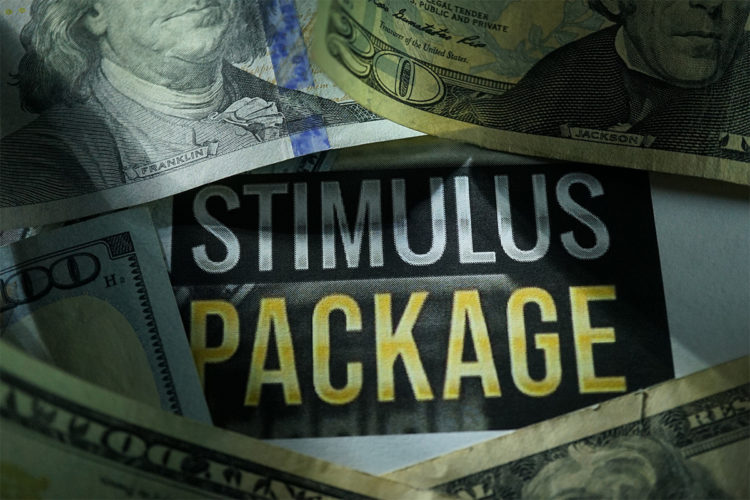COVID Stimulus Package: Notes for Business Owners

With the massive impact of COVID-19 rippling across multiple industries and the resulting potential for a recession looming over the United States, the federal government recently took aggressive steps to inject approximately $2 trillion into the U.S. economy by passing the Coronavirus Aid, Relief, and Economic Security (CARES) Act. The CARES Act will have profound implications for business owners across the country as roughly $377 billion of the package is earmarked specifically for small businesses. If you’re a business owner grappling with the ramifications of COVID-19’s impact on your company’s present and future, there are several considerations and details contained within this new law—too many to cover in one article. However, we invite you to consider these highlights from the stimulus package that may be able to assist you and your employees.
Small Business Interruption Loans
- Overview: The highlight of the most recent stimulus package for business owners was the expansion of Small Business Administration (SBA) 7(a) loans for businesses with fewer than 500 employees, including those who are self- employed. For those businesses that were in business as of Feb. 15, 2020, and have paid or are currently paying independent contractors or employee salaries and payroll taxes, the SBA is offering specialized loans with an increased maximum loan amount of $10 million. Referred to as the “Paycheck Protection Program,” specifics on what amounts a given business may qualify for will vary, but payments on the amount borrowed can be deferred for at least six months.
- Interest Rates: Interest rates on these new loans are capped at 4%, making it an attractive option for business owners who may need short-term cash flows to weather the quarantine periods issued by many states and municipalities.
- Forgiveness Rules: Amounts used from these loans to cover essential costs like payroll, rent, mortgage obligations and utilities paid during the first eight weeks after the loan is taken out will be forgiven by the SBA. The only caveat to that forgiveness element is that employers must retain or rehire any workers they had on payroll prior to Feb. 15, 2020.
- How to get one?: The SBA already partners with commercial banks that are FDIC insured for traditional 7(a) loans to businesses, so business owners should contact banks with which they have existing relationships to determine what the specific steps are to obtain a loan. The SBA may also be adding lenders in the next few weeks, as all loan applications must be filed by June 30, 2020.
Incentives to Retain Employees
- Tax Credits vs. Loans: For businesses that don’t necessarily need loans, there is also the possibility of a tax credit next year for keeping workers on payroll through the pandemic. Businesses will be provided credits against their 6.2% Social Security payroll tax refunds amounting to half of what’s spent on an employee’s wages on the first $10,000 per worker prior to Dec. 31, 2020.
- Tax Credit Rules: To qualify for the tax credit, businesses will need to show they sustained a 50% loss compared to the same quarter last year or have operations suspended due to government-required quarantine. Again, for businesses that take advantage of the loan program, these tax credits will not be available.
Deferred Payroll Tax for Businesses
- Payroll taxes can wait: Businesses can defer payment of the traditional 6.2% payroll tax for two years. Any amount due for 2020 can be paid off in two installments: half by Dec. 31, 2021 and the remaining half by Dec. 31, 2022.
- All-encompassing: Applies to businesses, but also self-employed individuals.
Economic Injury Disaster Loans (EID Loans)
- Revamped EID Loans: For small businesses that may fall outside the purview of the above mentioned Payroll Protection Program, other options are available. EID Loans are not new types of loans but were expanded by the CARES Act to include a pandemic as a disaster. While they lack the forgiveness element of the “Paycheck Protection Program,” many small- business owners should consider applying for both types of loans, although they may only end up accepting one type.
- Loan Considerations: Business owners can seek a working capital EID loan of up to $2 million with up to a 30-year term with interest rates capped at 3.75% for small business or 2.75% for nonprofits. Loans of up to $200,000 don’t require a personal guarantee and, even if businesses don’t qualify for larger loans, smaller loan advances of $10,000 are available based only on self-certification and the borrowers credit score. The requirements to be approved for these loans are relatively low, but applicants must have been in business as of Jan. 31, 2020 to qualify, and proceeds must be used for things like fixed debt, payroll, accounts payable, or other approved expenses that cannot currently be paid due to the pandemic. Note that businesses can apply for both the Paycheck Protection Program loans as well as the EID Loans.
Source: ‘‘Coronavirus Aid, Relief and Economic Security Act’’
This article is limited to the dissemination of general information pertaining to Mariner Wealth Advisors’ investment advisory services and general economic market conditions. The views expressed are for commentary purposes only and do not take into account any individual personal, financial, or tax considerations. As such, the information contained herein is not intended to be personal legal, investment or tax advice or a solicitation to buy or sell any security or engage in a particular investment strategy. Nothing herein should be relied upon as such, and there is no guarantee that any claims made will come to pass. Any opinions and forecasts contained herein are based on information and sources of information deemed to be reliable, but Mariner Wealth Advisors does not warrant the accuracy of the information that this opinion and forecast is based upon. You should note that the materials are provided “as is” without any express or implied warranties. Opinions expressed are subject to change without notice and are not intended as investment advice or to predict future performance. Past performance does not guarantee future results. Consult your financial professional before making any investment decision.
Mariner is the marketing name for the financial services businesses of Mariner Wealth Advisors, LLC and its subsidiaries. Investment advisory services are provided through the brands Mariner Wealth, Mariner Independent, Mariner Institutional, Mariner Ultra, and Mariner Workplace, each of which is a business name of the registered investment advisory entities of Mariner. For additional information about each of the registered investment advisory entities of Mariner, including fees and services, please contact Mariner or refer to each entity’s Form ADV Part 2A, which is available on the Investment Adviser Public Disclosure website. Registration of an investment adviser does not imply a certain level of skill or training.

